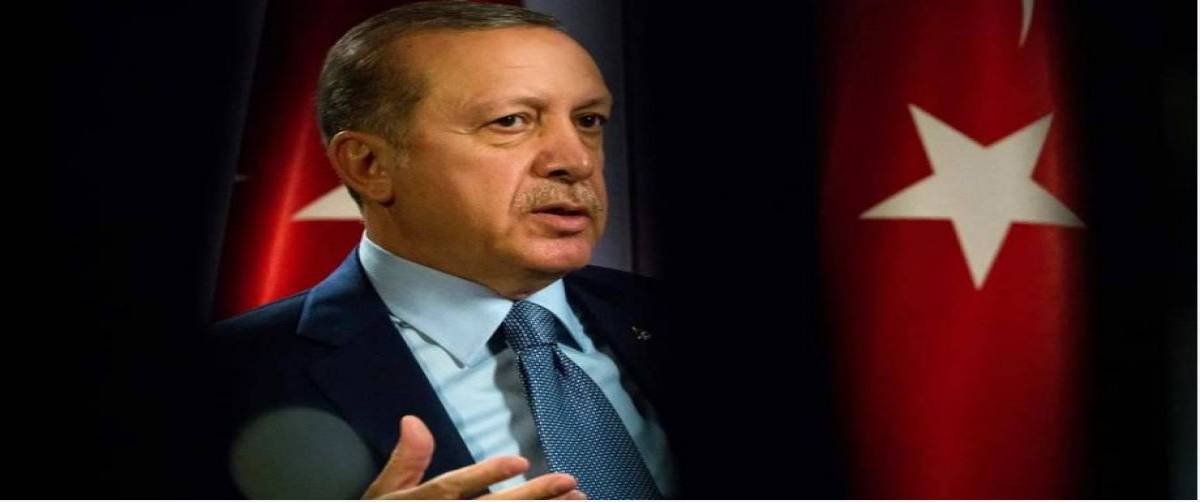1555 Views
Erdogan’s Syrian Masterplan: Industrial Zones or a Trojan Horse for Neo-Ottoman Control?
Turkey’s initiative to establish industrial zones inside Syrian territory marks a significant shift in its approach to Syria, moving from conflict toward economic cooperation. Announced in 2025, this strategy aims to normalize relations with Damascus, strengthen regional trade, and support Syria’s post-war reconstruction. By focusing on small and medium-sized enterprises (SMEs), leveraging Gulf investments, and pursuing ambitious development projects, Turkey seeks to solidify its role as a key player in the Levant.
Turkey’s proposal for industrial zones in Syria is a strategic effort to mend and normalize relations with Damascus, which had been strained for years due to conflict. Experts note that these zones could be established rapidly with secure, fully developed infrastructure, as concluded in Ankara in 2025. This initiative goes beyond traditional diplomacy, focusing on economic institution-building to create formal trade channels. The revival of the Turkey–Syria Business Council, with a founding agreement to be signed under the Foreign Economic Relations Board (DEIK), underscores the significance of this commitment. The Syrian side has expressed hope that Turkey will set up factories in Syria to export industrial products and utilize existing production resources. This move aligns with Turkey’s broader goal of integrating Syria into its economic sphere and fostering political stability through shared economic interests — a goal seen as essential for Turkey’s security.
Meanwhile, the Syrian government has prioritized cooperation in medium-scale industries to boost local industrial growth, creating tangible economic gains. This approach focuses on strengthening small industrial estates and producing goods needed by both Turkey and Syria, thereby generating foreign currency for Syria and supplying Turkey’s industrial needs at lower costs. This strategy is also seen as key to encouraging Syrians to return home — something Turkey is actively facilitating.
The success of Turkey’s industrial zones and related infrastructure projects relies heavily on financial backing from Gulf Arab states, particularly Qatar. A notable example is the joint project with Qatar to export Azerbaijani gas to Syria, highlighting Gulf capital’s role in financing Syria’s reconstruction. This reliance reflects a broader geopolitical trend, as Gulf countries hold strategic stakes in Syria’s future. Turkish banks are also preparing to operate in Syria, further enabling investment and economic activity. While Gulf investor participation ensures the financial viability of these projects, it also introduces foreign influence into Turkey–Syria relations. As a result, while Syria moves toward economic recovery, it may also face challenges to its political independence.
Despite challenges such as inflation, banking restrictions, and the lingering impacts of Syria’s war, trade between Turkey and Syria is thriving. In the first seven months of 2025, trade volume reached $1.9 billion, with expectations of a new record. This growth stems from the potential of industrial zones to enhance cross-border trade, with Turkish entrepreneurs eager to join Syria’s reconstruction. Zones in areas like al-Rai and al-Bab facilitate exports of goods such as footwear and agricultural products — often marketed as Turkish — benefiting from low production costs. However, risks to sustainable growth remain, including the depreciation of the Turkish lira and banking constraints, requiring careful management.
Turkey’s reconstruction agenda in Syria extends beyond industrial zones, encompassing major development projects such as hospitals, airports, and government buildings. These initiatives form part of a broader roadmap to support Syria’s recovery while simultaneously strengthening Turkey’s regional influence.
In northern Syria, Turkey has managed local economies through councils, introduced the Turkish lira as the common currency, and funded services — signaling deep engagement in the region. Turkish private companies like PTT, Turk Telekom, and ET Energy, alongside Syrian firms, have launched projects to rebuild infrastructure such as dams, power networks, and roads. These efforts carry clear geopolitical messages, positioning Turkey as a stabilizing force in Syria and an influential actor in regional tensions.
Turkey’s initiative to create industrial zones in Syria is a multifaceted strategy blending economic and political aims. By prioritizing SMEs, leveraging Gulf investments, and pursuing ambitious development projects, Ankara seeks to normalize relations with Syria and expand its regional influence. The $1.9 billion trade volume in 2025 and the reconstruction focus highlight the potential for economic growth despite challenges like inflation and banking limits. However, Turkey’s neo-Ottoman ambitions and its support for the Muslim Brotherhood axis — alongside Qatar — may complicate regional dynamics. This approach could also heighten tensions with Israel, which views Turkey’s growing influence in Syria with concern. As Turkey navigates this complex landscape, it must balance economic engagement with the need for regional stability to ensure sustainable development in Syria and avoid turning the country into a battleground for regional power rivalries.
*Translated by Ashraf Hemmati from the original Persian article written by Amin Mahdavi

Comment
Post a comment for this article